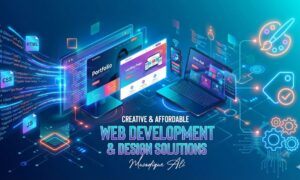Enterprise Resource Planning (ERP) systems have come a long way since their inception in the 1960s. Today, Best ERP Software are an essential part of many businesses, providing a central platform for managing business processes, data, and resources including customer relationship management, business intelligence and analytics, web development, project management, and much more. ERP systems have evolved significantly over the years, with new technologies and features continually being added to enhance their capabilities. Looking ahead, the future of ERP is exciting, with many predictions for the next decade. From increased use of AI and machine learning to greater emphasis on security and data privacy, ERP systems are set to become even more powerful and versatile. In this blog, we’ll explore some predictions for the future of ERP and what they mean for businesses.
A BRIEF HISTORY OF ERP
The concept of Enterprise Resource Planning (ERP) emerged in the 1960s when businesses started using computer technology to automate their processes. However, the first modern ERP system was developed in the 1990s when companies sought an integrated solution for managing their business processes. The early ERP systems were often expensive and complicated, requiring significant customization and implementation efforts.
In the 2000s, ERP systems became more standardized and accessible, with the advent of cloud-based ERP solutions that provided greater flexibility and scalability. Today, ERP systems are an essential part of many businesses, providing a central platform for managing their operations, finance, Human resource Software , and supply chain Software. ERP systems have evolved significantly over the years, with new features and functionalities continually being added to enhance their capabilities.

THE FUTURE OF ERP
The future of ERP is exciting, with many predictions for the next decade. Here are some of the key predictions for the future of ERP:
- GREATER EMPHASIS ON SECURITY AND DATA PRIVACY
With the increasing importance of data, security and data privacy will become even more critical in the future of ERP. Implementation of ERP systems will need to be designed with security and data privacy in mind, with robust security features and strict data privacy policies. Businesses will need to ensure that their ERP systems comply with relevant regulations, such as the GDPR and CCPA, and take steps to protect their data from cyber threats. This will be particularly important as businesses continue to store more data in the cloud and rely on third-party service providers for their ERP systems.
- ADOPTION OF CLOUD-BASED ERP
One of the main predictions for the future of ERP systems is that more businesses will adopt cloud-based ERP systems. This shift towards cloud-based ERP systems is already well underway, but it is expected to accelerate in the coming years. Cloud-based ERP systems offer several benefits over on-premise ERP systems, including greater flexibility and scalability. Cloud-based ERP systems also enable businesses to access their data and applications from anywhere, making it easier to work remotely. This is especially important in the wake of the COVID-19 pandemic, which has accelerated the trend toward remote work.
WHY CLOUD-BASED ERP?
- It helps companies manage and automate various business processes in one system.
- It’s a more flexible and affordable option than traditional on-premises ERP systems.
- Users can access it through a web browser from anywhere with an internet connection.
- MORE PERSONALIZED ERP SYSTEMS
ERP systems will become more personalized, providing customized workflows, interfaces, and reporting capabilities. This will enable businesses to tailor their ERP systems to their specific needs and gain a competitive advantage. Personalized ERP systems revolutionize your businesses and effectively manage your data and resources, improving your operational efficiency.
- INCREASED USE OF AI AND MACHINE LEARNING
AI and machine learning technologies are already being integrated into ERP systems, but their use is expected to increase significantly in the coming years. These technologies will be used to provide predictive insights, automate routine tasks, and improve decision-making. For example, AI and machine learning can be used to automatically identify patterns in data and make predictions about future trends. This can help businesses optimize their operations and make more informed decisions.

- INTEGRATION WITH OTHER TECHNOLOGIES
ERP systems will increasingly integrate with other technologies, such as IoT devices, blockchain, and big data analytics. This will enable businesses to collect and analyze more data, improving their decision-making and operational efficiency. For example, IoT devices can be used to collect data on the performance of manufacturing and production equipment, which can then be used to optimize maintenance schedules and improve overall equipment effectiveness.
IN CONCLUSION
The future of ERP is looking bright, with many exciting developments on the horizon. The adoption of cloud-based ERP systems is expected to continue to grow, enabling businesses to be more flexible and scalable. Increased use of AI and machine learning will provide businesses with more predictive insights and automation, leading to improved decision-making and operational efficiency. Personalized ERP systems will help businesses to tailor their ERP systems to their specific needs, while integration with other technologies will enable businesses to collect and analyze more data. Finally, with the increasing importance of data, security and data privacy will become even more critical, and businesses will need to ensure that their ERP systems are designed with robust security features and strict data privacy policies.



































